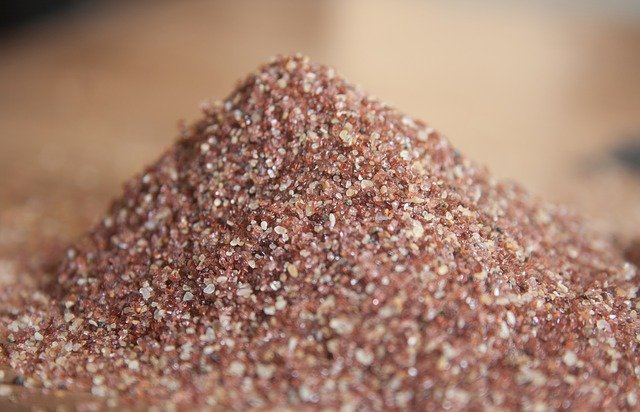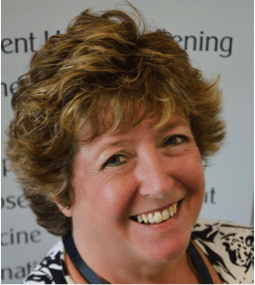 by Gill Monk
by Gill Monk
The subject of occupational health causes much confusion – especially among SME’s.
I have had people nod sympathetically and express how valuable basket weaving is to society and how fortunate their granny was to have occupational therapy when she came out of hospital.
Nothing could be further from the truth.
Our client is the business owner or manager who employs people to work – full or part time – permanent or contract. You may have noticed, I have emboldened the words ‘employs people to work’ because this is what businesses do isn’t it? You could have the best product in the world but if you haven’t people to make it, sell it, package it, distribute it, account for it, then there is little point in ‘it’ at all.
You employ people because you need them to operate your business. Doesn’t it make good commercial sense then to ensure that you remove as many obstacles to their working as possible?
There are only 260 weekdays in a year. For a normal 5-day week working pattern, you must give at least 28 days paid holiday (including statutory holidays) which leaves 232 workable days. With employment costs running at about 13.8 per cent, someone who earns £20,000 gross pa actually costs you £98.10 per day or £490 per week.
Let’s use a scenario to demonstrate what I mean by ‘Sand in Your Knickers….’.
Jerry is a Geophysicist in the oil and gas industry. He has landed a new job and has qualifications which I can’t even spell. He is one of team of eight geophysicists who have been allocated ‘Area Zebra’, a specific area of the ocean bed at the bottom of an ocean somewhere. The ‘AZ’ team, and all the other teams like them, spend their days each sitting in front of dual 30” monitors examining highly complex diagrams and geological images being beamed via very expensive technology. Their job is highly skilled requiring minute attention to detail – they need to find the next source of black gold before the next company.
All the time Jerry is concentrating on his work he is inching closer and closer to spotting a possible exploration site as he and his team mates probe the ‘AZ’ field, but if he gets distracted, he loses focus, he takes his eye off the ball.
That distraction could be as minor as a grain of sand in his knickers or a stone in his shoe. He wriggles and twists, shuffles and shifts and then at last he goes and sorts himself out. Such an easily remedied little irritant, but by now he has wasted valuable time – he become less effective and less productive.
He leaves his desk. His team have now lost 1/8th or 12.5% of their productivity and it is costing the company money.
I don’t know of any offices which are likely to cause sand to get into underwear, but I can think of plenty that have issues which are just as irritating. This can have a negative effect on the quality and quantity of the output of the staff.
Common office issues are:
Headaches, sore eyes, dry eyes, aching backs, necks, shoulders, wrists, finger joints. Swollen ankles, stress, depression, irritability, negativity.
These can all result in business loss because all the time an employee is being distracted by such things, they are not looking for the black gold. They are not talking nicely to a customer, or charming a supplier into a better discount. They are not chasing debtors, meeting delivery dates and deadlines or answering the telephones. And to top this, they may even go off sick. Oh dear! Sick people….sick company.
Yes, you can huff and puff. You can call your employment lawyer. But their first questions they ask will be “what action have you have taken to establish the cause? Is it work related? What have you done about it?”. Because when you employ people, it is enshrined in law that you have a duty of care.
We no longer can put children up chimneys. We can no longer turn a blind eye to that grain of sand.
It need not cost you a lot of money. The HSE website provides downloadable tick box forms to help you carry out DIY DSE assessments (Display Screen Equipment Regulations), or example. Or if you want an impartial professional assessment call in an Occupational Health provider. It could mean the difference between sand and talcum powder.
Did you know that green plants in an office improve staff performance?
Did you know that the flicker of a faulty fluorescent strip light or a fast rotating ceiling fan could trigger a seizure in people with photosensitive epilepsy?
And sandy drawers………….. well, you can twist your back.
 Gill Monk, founder and Managing Director of All Health Matters. All Health Matters is a leading provider of occupational health services with a range of clients from sole traders to FTSE 100 companies and multi-nationals. Gill Monk has been the Managing Director of All Health Matters since she founded the company in February 2010.
Gill Monk, founder and Managing Director of All Health Matters. All Health Matters is a leading provider of occupational health services with a range of clients from sole traders to FTSE 100 companies and multi-nationals. Gill Monk has been the Managing Director of All Health Matters since she founded the company in February 2010.
Having spent over thirty years in commercial enterprises large and small, and understanding only too well the difficulties and issues that companies face in today’s markets, Gill launched All Health Matters to support those businesses.
Gill’s philosophy is simple, staff are the greatest asset a company can have, yet they are also probably the most expensive, so it makes sense to ensure they are present and productive.
All Health Matters has facilities in Canterbury, Kent, and in Docklands, East London and Brentford, West London, offering friendly and professional private health services to businesses and individual clients in addition to providing occupational health services to business clients in the UK and overseas.
What makes us susceptible to burnout?
In this episode of the Safety & Health Podcast, ‘Burnout, stress and being human’, Heather Beach is joined by Stacy Thomson to discuss burnout, perfectionism and how to deal with burnout as an individual, as management and as an organisation.
We provide an insight on how to tackle burnout and why mental health is such a taboo subject, particularly in the workplace.



